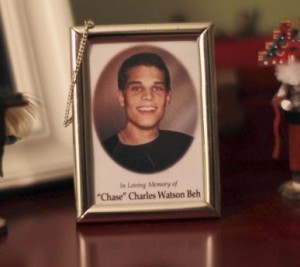Youth’s Death Raises Questions about Unlicensed Social Worker
Chase Beh’s parents turned to drug counselor Kimberly Even to help their 20-year-old son overcome his addiction to heroin, according to this article in the Chicago Tribune.
However, Beh died from an overdose in 2009 and it was found Even was not licensed to be a drug counselor in Illinois. The Illinois Department of Financial and Professional Regulation in 2009 had also fined her $10,000 for practicing unlicensed social work.
After Beh’s death Even continued to identify herself as a licensed clinical social worker and certified alcohol and drug counselor and see clients, the article said.
Authorities eventually closed her North Shore clinic.
Even, 47, is now in jail, charged with depositing $75,000 in insurance company checks made out to a client’s father.
Beh’s mother said there should be a law in Illinois to make it criminal for a person to falsely claim they are a drug counselor.
“I can’t imagine how she could have been in practice and no one looked into her credentials,” Christine Beh said. “I think what she did was unconscionable. It’s a betrayal that I just think is unbelievable.”
To learn more about proper social work credentials visit the National Association of Social Workers Credentialing Center by clicking here.
| Leave A CommentAdvertisement
7 Comments
Trackbacks
Leave a Comment
You must be logged in to post a comment.




There is no doubt that Evan’s behavior is unconscionable and illegal. Not to mention how she has contributed to the erroneous concept of distrust in social workers – not something our profession needs! However, that she was able to pose as a LCSW and a CAC also speaks to a huge oversight on the part of her employers. All employers who engage the services of licensed professionals have an obligation to their clients and their programs to screen anyone who claims to have a state license. “No documentation, no hire” should be their motto. In addition, anyone privately engaging the services of a licensed clinical social worker should also be equally stringent about demanding proof. If you have earned a license in your state and it is up to date, then you have a copy – it’s that concrete. No excuses, no ambivalence, show me the license!!
Kathy Gurland, LCSW
NYC
Curiously, advertisements for “Kimberly Even CADC” are still posted under “find a therapist” at: http://www.psynow.com/search/city/glencoe/Page-2.htm (The web sites by-line is “everyone deserves to be happy.” ) and the “insider pages” at http://www.insiderpages.com/s/IL/Winnetka/AddictionTreatmentPrograms?cs_category=Addiction+Treatment+Programs.
Whats the lesson here?
Sorry Folks, but I have a major problem with a portion of NASW’s handling of this issue. The article ends with a quote from the deceased individual’s mother, “I can’t imagine how she could have been in practice and no one looked into her credentials,” Christine Beh said. “I think what she (Evens) did was unconscionable. It’s a betrayal that I just think is unbelievable.”
The next line states: “To learn more about proper social work credentials visit the National Association of Social Workers Credentialing Center by clicking here.”
This is a clearly flawed offer: while the individual in the story did use the term “credential” the fact is she was clearly referring to state licensure. That is the issue. Licensure and the failure of Ms. Even to have a valid license to practice as either a social worker or CADC. That is the issue. NOT the NASW’s “credential.”
Yes, the link noted by the NASW eventually states, “Definitions of social work practice within state or territorial jurisdictions may vary significantly depending on the resources in a given part of the country.” But to the lay individual, what does that mean? This is less than helpful. (And not particularly great grammar.)
The NASW link states ,”Licensure does not replace a professional credential;” Well, uhm, Sure it does! LET’S BE CLEAR: A PROFESSIONAL CREDENTIAL DOES NOT REPLACE LICENSURE! This is an important and essential distinction.
I would also challenge the suggestion that licensure only, “speaks to meeting minimal requirements of proficiency…”
In fact in most states there are multiple levels of licensure and EACH requires the completion of regular continuing education credits beyond the particular degree as well as letters of reference, and oversight by a state regulatory board with legal sanction (peer review) authority.
In fact the NASW credentials while certainly worthy of professional recognition are entirely voluntary and are not in any state recognized in the place of state licensure or certification. Beyond the educational degree and professional license, NASW Credentials, (in the form of professional certifications) are an entirely voluntary pursuit.
Information on state social work licensure (aka credentialing) is available from the Association of Social Work Boards at https://www.datapathdesign.com/ASWB/Laws/Prod/cgi-bin/LawBoardWebsiteDLL.dll/EXEC/0/06rksqk1v1oxbw1brb6pw1m23tli
Gary E. Bachman, MSSW, LSCSW
Gary:
Thanks so much for your observations about this troubling issue and the SocialWorkersSpeak.org article. Also thanks for the link to the Association of Social Work Boards.
Take care
Greg Wright
Senior Public Relations Specialist
NASW
Mr. Wright,
I am so glad that you did this article. Currently, I am a PhD Social Work student at the Whitney M. Young., Jr. School of Social Work. I hold LMSW and ACSW credentials. As an educator, I hope and believe that this incident will send a message to several of my social work colleagues who are determined to function in roles and capacities of which they are not qualified. This is a very troubling concern as noted by Mr. Wright.
Professionally,
Judith Crocker-Billingsley
Social Worker
I was in her group and I knew Chase, the way her employers overlooked her is because it was HER program